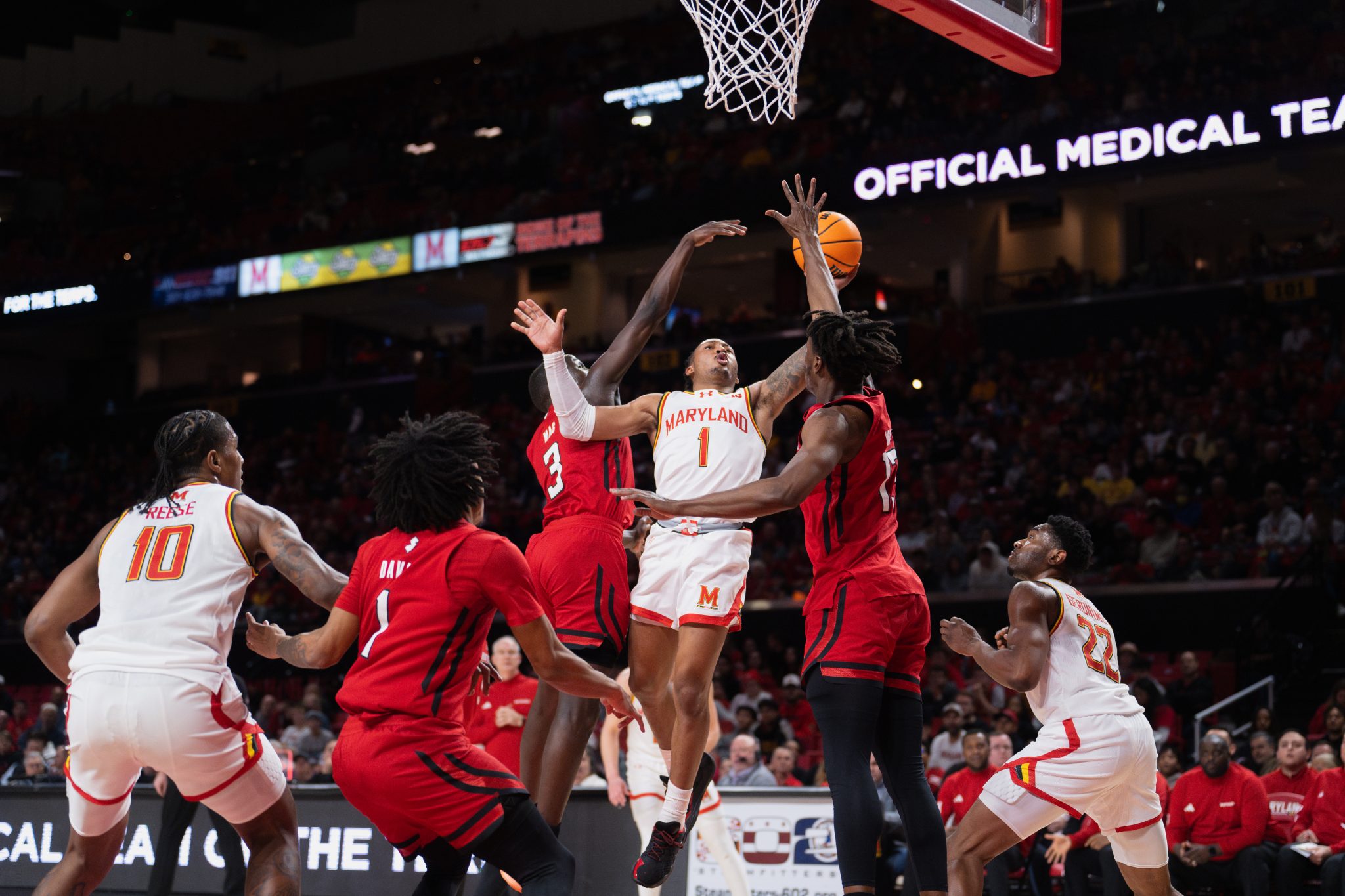Views expressed in opinion columns are the author’s own.
Xfinity Center was rocking like I had never seen it rock before. To a sold-out crowd, the Maryland vs. Iowa women’s basketball game did not disappoint. We stood in the face of awe-inspiring performances from Caitlin Clark, Bri McDaniel and Jakia Brown-Turner. And whether we booed or cheered for the players, the whole nation watched.
Despite the attention they garner, the players who dedicate their lives to such spectacles will not see a dime from it. That needs to change. All NCAA athletes deserve the right to unionize and be compensated.
Technically, NCAA athletes are amateurs, meaning they can’t receive payment for their services. But everyone knows this league and these players are not amateurs in the colloquial sense of the word. The network deals, name recognition and level of play far surpass the purely nominal “amateur” status NCAA established in the early 1900s when college students had untelevised exhibition matches.
Based on the initial National Labor Relations Board ruling in Dartmouth permitting students to be treated as school employees and vote for a union, the iron is hot. It’s time we as a society recognize that these players deserve the right to unionize and be paid what they’re worth, especially in the midst of NCAA lobbying efforts to prohibit them from being classified as employees at all.
Athletes are faced with an unenviable dichotomy: they either assume the role of the superhuman when successful or are scrutinized as subhuman when they make mistakes. They are rarely seen as just human — as people who go to work on gameday. How can administrators dance around the intuitive and just idea that people ought to be paid for their work? If students working at Xfinity concessions stands or Vigilante weren’t paid strictly because of their status as students, we’d all rightfully be up in arms about labor violations and wage theft.
This sentiment should not disappear simply because we often watch these students on television.
Some may argue that those in sports with less viewership shouldn’t be paid in the spirit of meritocracy. This argument is pretty salient — everyone knows what type of viewership their respective sport brings in. That is precisely why a union is necessary for fair negotiating. In a space that requires case-by-case analyses, organization of the players themselves is integral to providing the depth and insight necessary to reach a fair outcome in every sport.
And if it’s meritocracy we’re chasing, a system with representation is far preferable to the current one.
Even in the Dartmouth appeal, one point of contention is the long-term effect of placing such a focus on athletics over academics at these institutions, especially if programs that don’t earn revenue can be dissolved. Yet, that concern falls short of being a rebuttal.
As all of us fill out March Madness brackets, take pride in our athletic wins and feel defeat in losses, it’s clear the emphasis has already been set on athletics in many schools in the country. Paying the players does not formalize it so much as the massive promotions and broadcasts already have.
Additionally, having a union allows each collective bargaining case to be properly contextualized and evaluated on their own. A blanket prohibition removes the nuance necessary to properly operate and regulate these institutions. Avoiding the problem isn’t the same as solving it.
Any doomsday hypothetical that paying these players would break the bank for the NCAA begs the question — if such a massive organization can only run on free labor, does it deserve to run at all?
The broad public and insider support for the recognition of these athletes as employees speaks to a common understanding of the injustice that we all see.
Furthermore, any fears of unionization going too far should probably be cast aside entirely as these players are currently playing entirely unsalaried, sacrificing their bodies as unsung heroes.
The case for collegiate student-athletes to unionize and receive compensation is grounded in principles of fairness, equity and respect for their dedication and contributions to their respective sports programs. By recognizing their rights as workers and providing avenues for fair compensation via union formation, universities can pursue a more equitable environment that tangibly values the development and well-being of student-athletes. After all, none of the cheers, thoughts or prayers pay the bills for these players.
It’s imperative to acknowledge the immense sacrifices and commitments these individuals make and ensure they have the agency and support to advocate for their rights. Unionization now, fairness forever.
Rohin Mishra is a senior economics and government and politics major. He can be reached at rohinpmishra@gmail.com.



